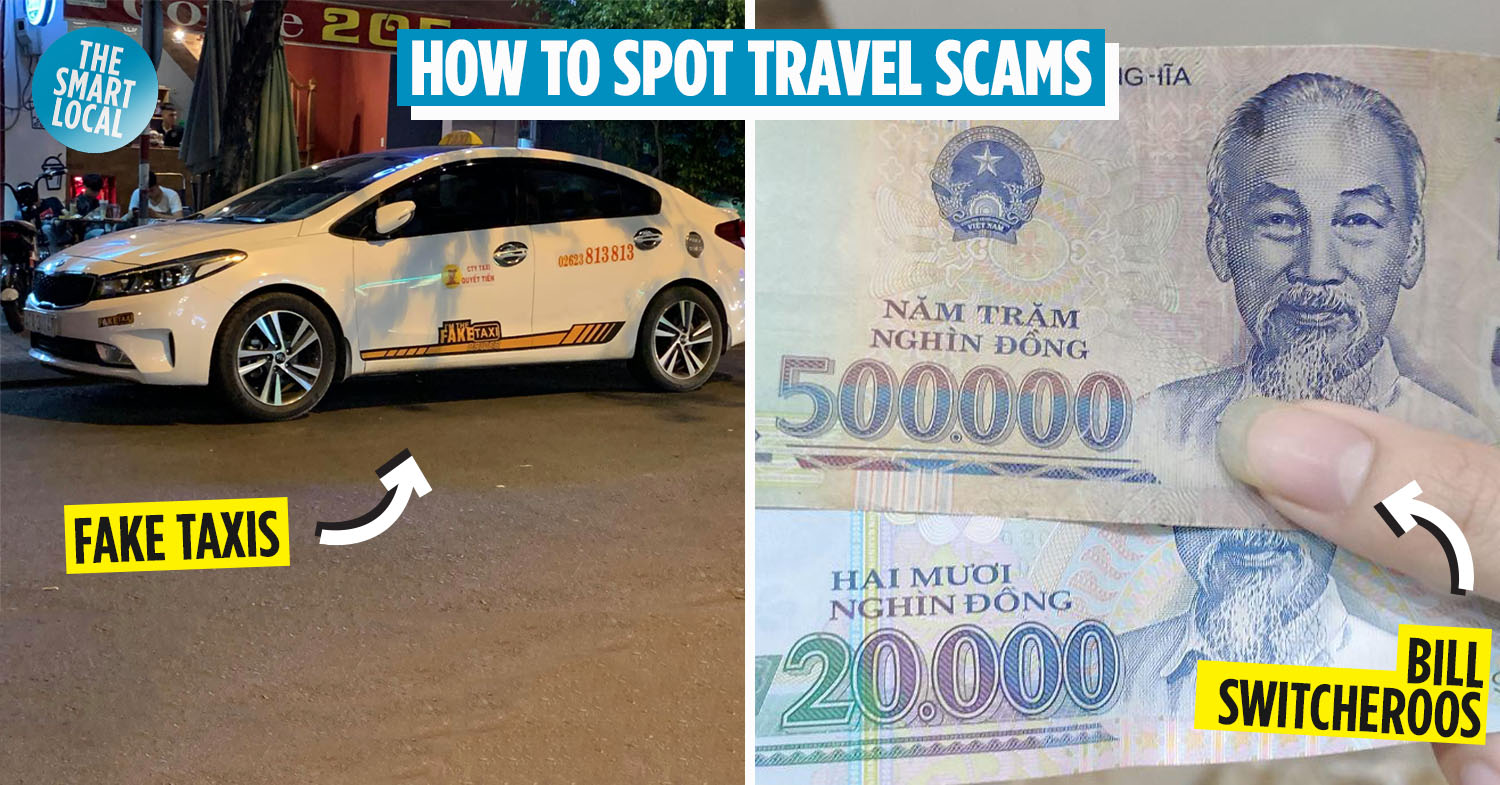Common scams in Vietnam
Vietnam is a country of stunning natural landscapes and unique cultural heritage. However, as with any other tourist destination, it is also home to scammers in whose minds foreigners are all rich and ignorant – and hence easily exploitable targets. So, here are some common scams in Vietnam to watch out for.
Most of these scams are more of a minor inconvenience than anything else. Still, it’s never a bad thing to come prepared.
1. Fake taxis
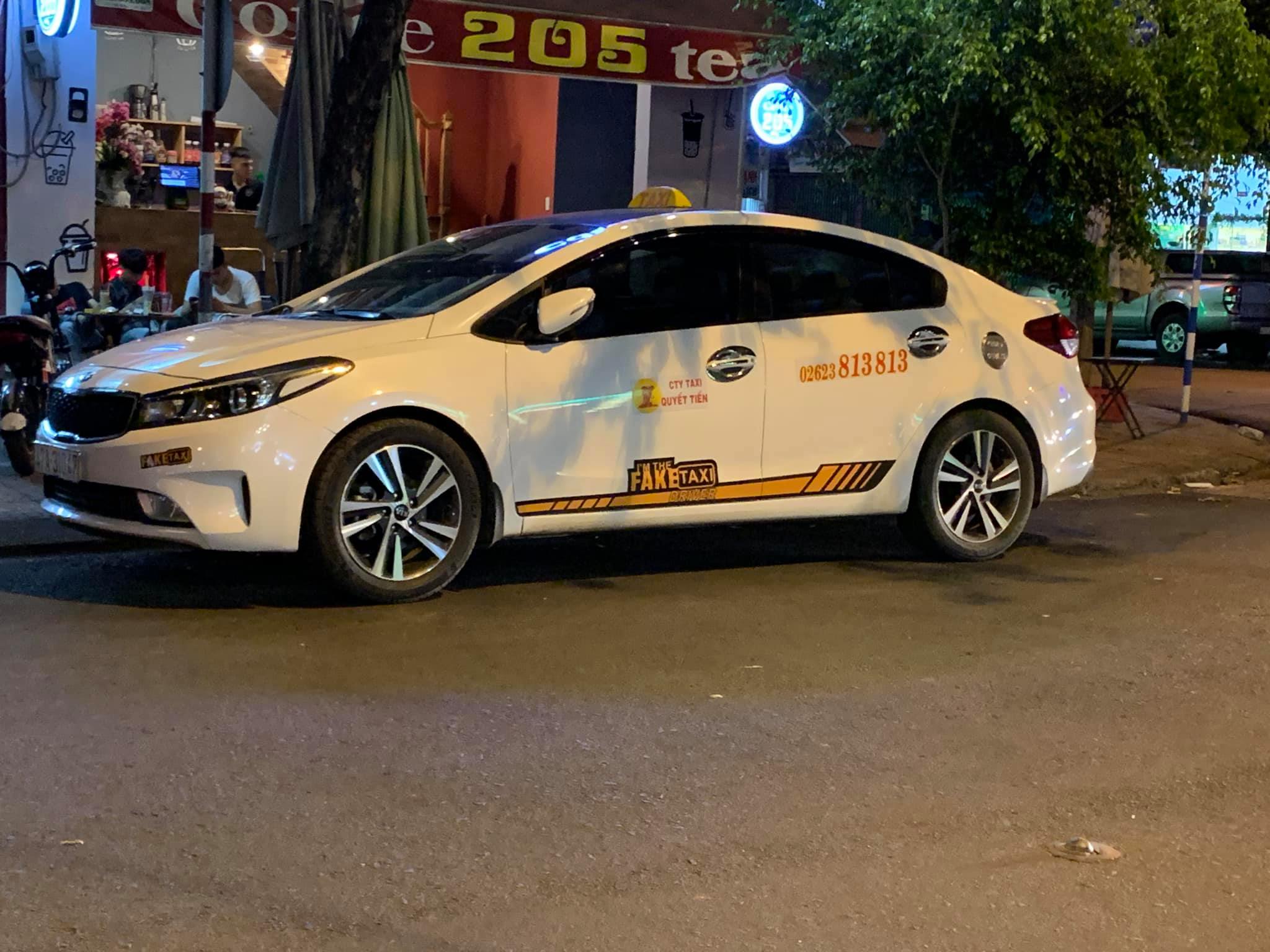
Image credit: Nguyễn Thanh Huy
It normally works like this: as soon as you step outside the airport, you find yourself surrounded by a flock of taxi drivers offering to take your luggage for you. Too tired from your long flight, you hand it over and get into the first car they lead you to.
Chances are, these are fake taxis with rigged meters that jump too fast and too much, charging you way more than they should. The driver may also take a roundabout route – and you would have no clue if you’re new to the city – to further inflate the price.
To avoid this scam, the best option is to simply use Grab and always have your GPS on to make sure they are taking you on the shortest route. But if your phone runs out of battery and you have no choice but to take an airport taxi, be sure to look for reliable brands, such as Mai Linh Taxi or Vinasun Taxi. Drivers of these companies should always wear a uniform and have his/her picture clearly displayed inside the car, so that’s another clue to look out for.
2. SIM card ripoffs
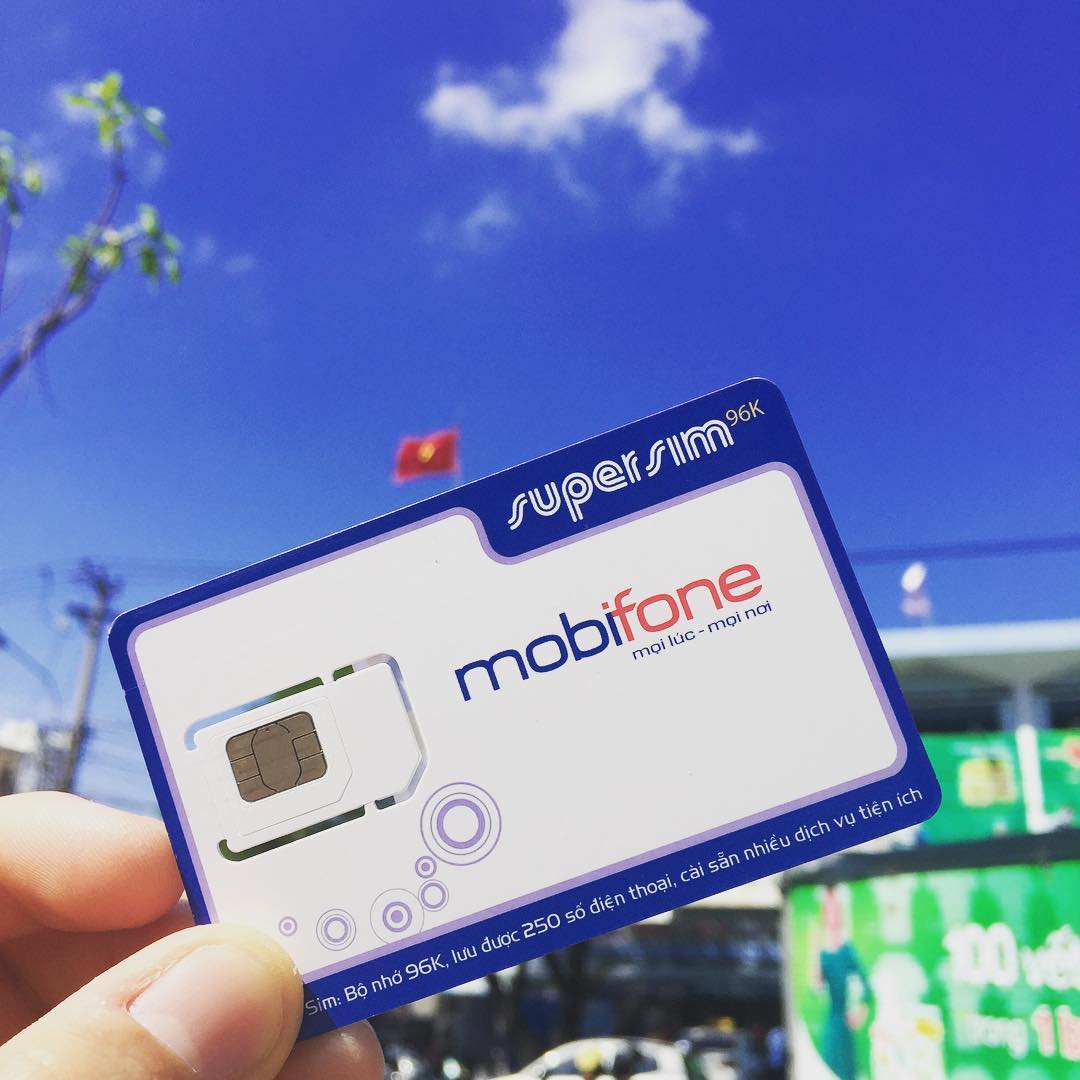
An example of an official SIM card
Image credit: @kimdarwin04
Having mobile data is essential in Vietnam as you can’t expect every place you visit to have WiFi available, which means you need a local SIM card for your phone.
You can find these readily available even from street vendors, which raises the question: how legit are they? Sellers will advertise that their SIM cards come with X days of unlimited data and so on, but more often than not, the package you get is not the one you paid for. For example, your card might not come with the amount of data promised, or dies just after a couple of days.
There have been reported cases of this happening even with SIM cards purchased at the airport. Thus, the more sensible choice would be to buy your SIM card from an official store from one of the 3 major mobile networks: Viettel, Mobifone, or Vinaphone.
3. Cyclo rides that cost an arm and a leg
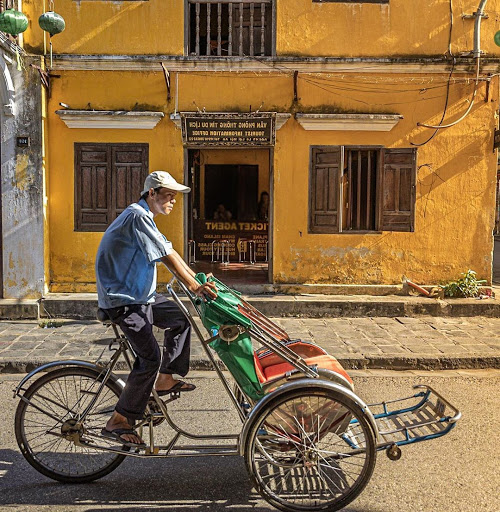
(Photo for illustrative purposes only)
Image credit:@swee_2u
Cyclos – 3-wheeled bicycles with a seat in the front for passengers – are a popular means of transportation in certain parts of Vietnam such as the Hanoi Old Quarter or the Hoi An Ancient Town as they allow you to immerse in the atmosphere while saving you the hassle of walking. However, if you are not careful, you might end up getting ripped off.
Don’t get me wrong, there are many honest cyclo drivers out there, but there are some black sheep as well. The first clue to differentiate them is that the latter are never clear about the price. They will pretend not to understand you or say that you can pay however much you like. At the end of the ride, though, they’ll take you to a secluded area and show you an official-looking price list, which is of course extremely inflated.
If you insist on experiencing a cyclo ride, it is advised that you agree on a price with the driver first and pay upfront. A one-hour ride should cost you VND200,000-VND250,000 (~USD8.61-USD10.76). Anything more than that should be considered a tip and is therefore optional.
4. Being asked to pay entrance fees to free attractions
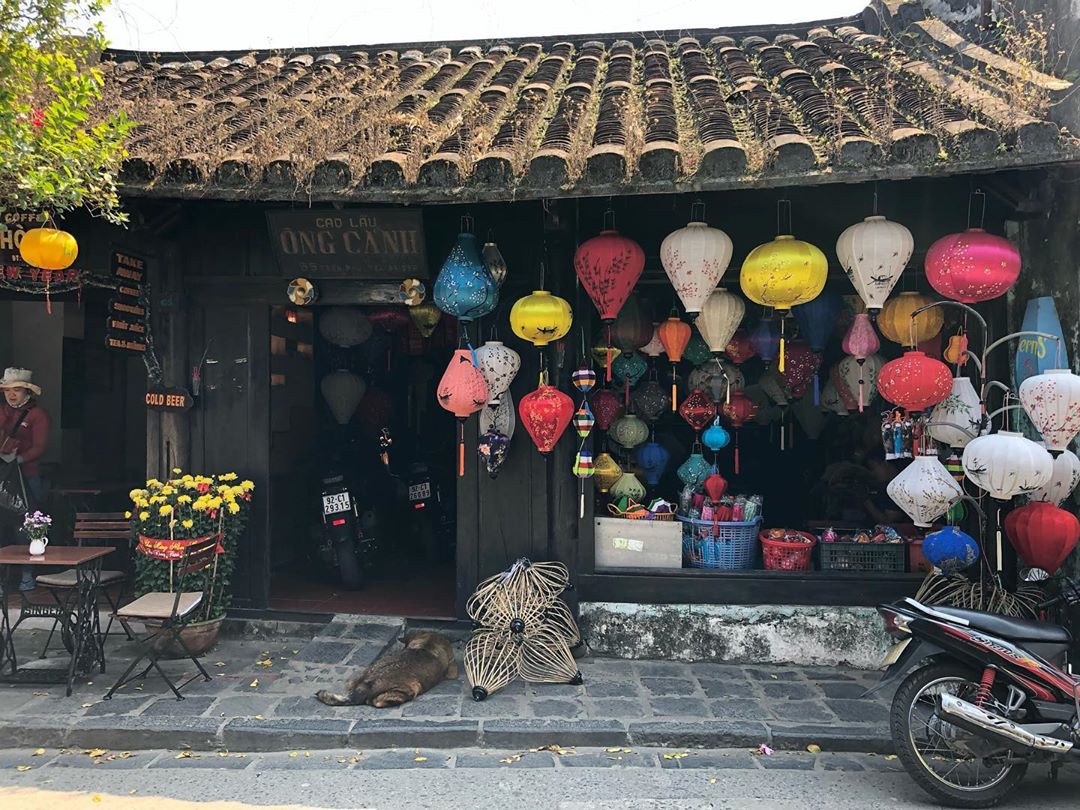
An ancient house in Hoi An
Image credit: @andylin1717
This scam is most commonly seen in the Hoi An Ancient Town due to a long-running confusion. The authority does offer a ticket (VND120,000, ~USD5.16) for the area, but this is only for entry to ancient houses and pagodas that have been preserved as exhibits. Simply walking on the streets and enjoying the food will not cost you a penny.
Some locals have used the complication to their advantage. Masquerading as officials, they roam the entrances of the old town preying on gullible visitors, asking to see their tickets. If they fail to present one, a fee is then demanded.
The best way to deal with these guys is to give them a firm shake of the head and walk past them. Or if you’d rather avoid a confrontation, just look for another entrance.
5. Getting pickpocketed at night markets
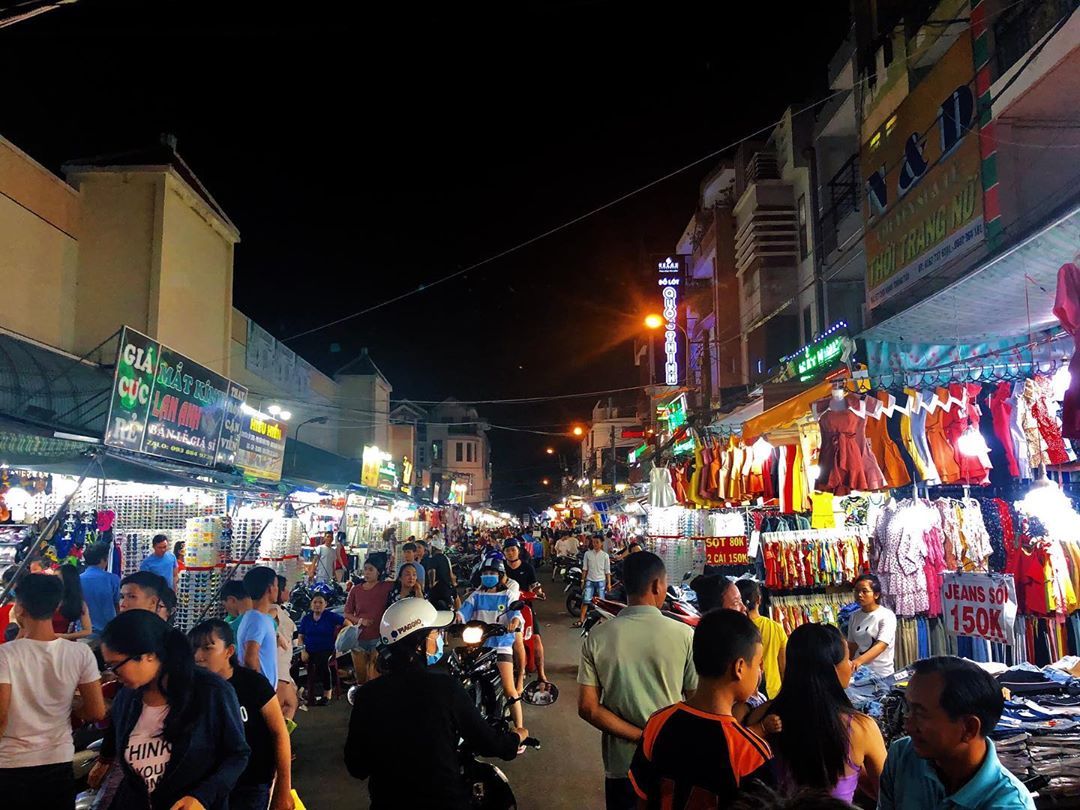
A night market in Vietnam
Image credit: photopics.ly
You’ve likely seen this in a movie: a stranger bumps into you seemingly by accident, apologizes with a polite smile, then continues on their merry way. A few moments later, you reach for your wallet only to find an empty pocket.
You probably couldn’t help but smile at how clichéd the entire scenario is while watching it from the comfort of your couch, but it might very well happen to you in the crowded night markets of Hanoi, Ho Chi Minh City, or Da Nang. Keep an eye out for your valuable belongings, and never bring all of your money and cards out of your hotel room at once.
6. Fruit or donut vendors offering “free” photo opportunities
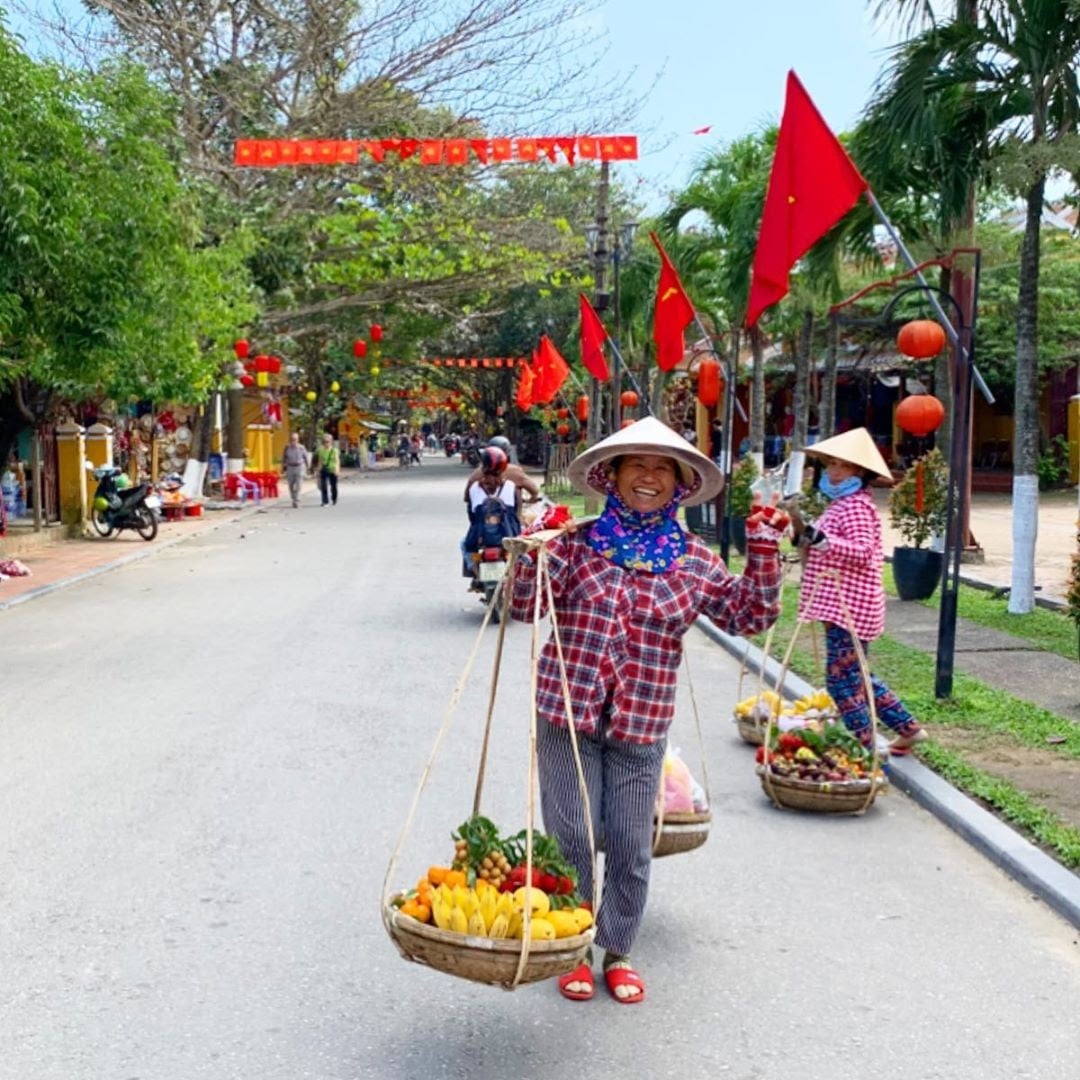
(Photo for illustrative purposes only)
Image credit: @haru.t.04.30
You can come across these vendors in any big city in Vietnam. As soon as you make eye contact, they approach to offer you a free slice of pineapple or a donut, then ask if you want to take a picture while holding their bamboo pole and straw hat.
Sure, such a picture will get you plenty of likes on social media, but it comes with the price of being pressured to buy their goods – usually at a much higher price than you would normally find for the same items at a regular market. Just decline their offer!
7. Overeager shoe shiners
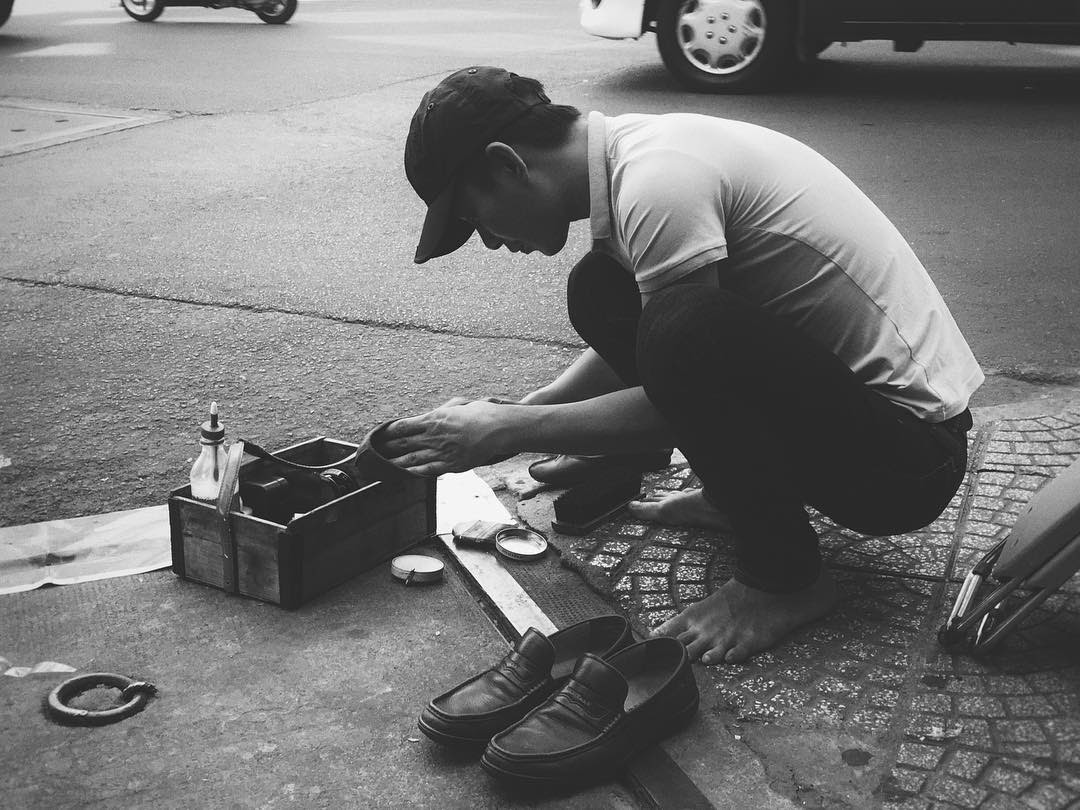
(Photo for illustrative purposes only)
Image credit:@hang_tran_253
While you’re enjoying a delicious milk coffee on the sidewalk like a true local, you might become the target of an infamous scam: the overeager shoe shiners.
These guys often just run up to you and start brushing your shoes despite your protests. In this situation, most people decide to roll with it after their first couple “Hey” and “What are you doing?” get ignored, only to find out later that their shoes are now being held hostage and the demanded shoe shining fee is 10 times what they had in mind.
That said, most shoe shiners are hardworking and honest, so there’s no need to be too alarmed. It’s only the overeager ones you should look out for. If they approach calmly and politely and your shoes do need polishing, feel free to go for it.
8. Motorbike rental scams
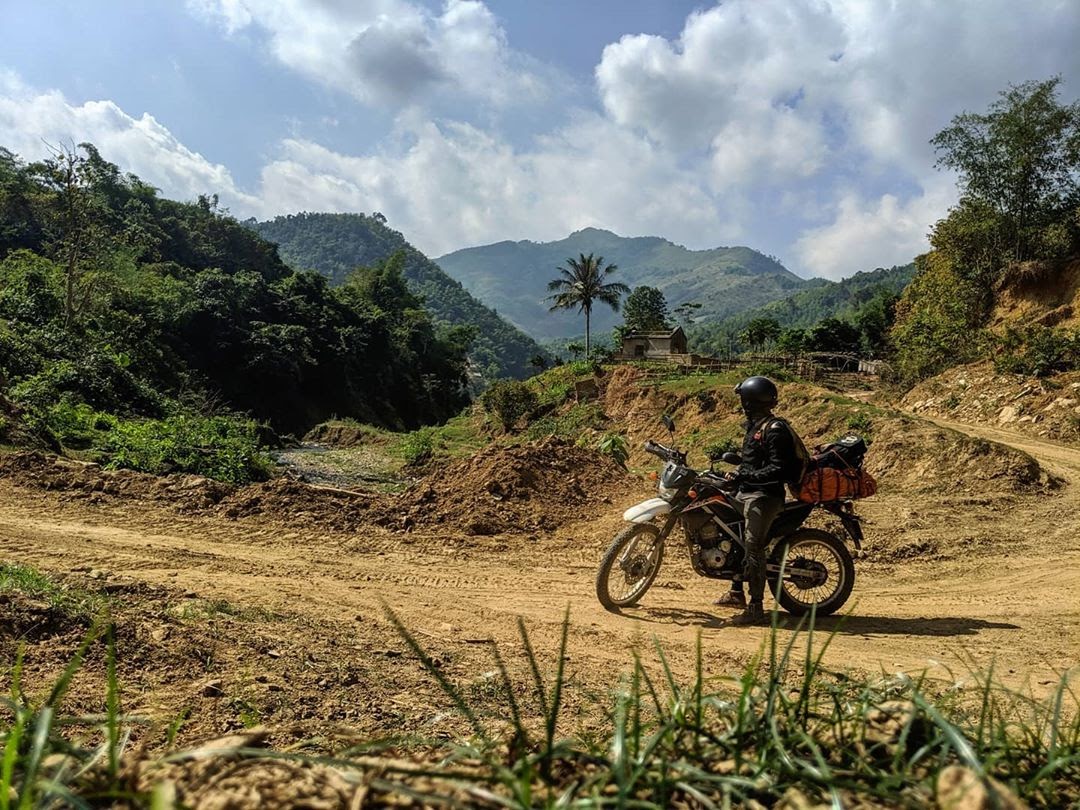
Image credit: @robdewjon
Motorbikes are sought after by many travelers as they are a convenient way of getting around. With such high demand, motorbike rental services are popping up all over the place, but not all their bikes are of good quality. Some places will give you bikes that break down within the first 10 km, after which they’ll demand a hefty sum (VND3,000,000-VND5,000,000, ~USD129.09-USD215.16) as compensation.
Taking time to do some homework on fuel-efficient bikes and reasonable bike rental rates will save you a lot of trouble here. A quick Google search will shower you with suggestions on rental stores in the area. Pick one with an official website and positive reviews, and you’re good to go.
9. Rigged gas stations
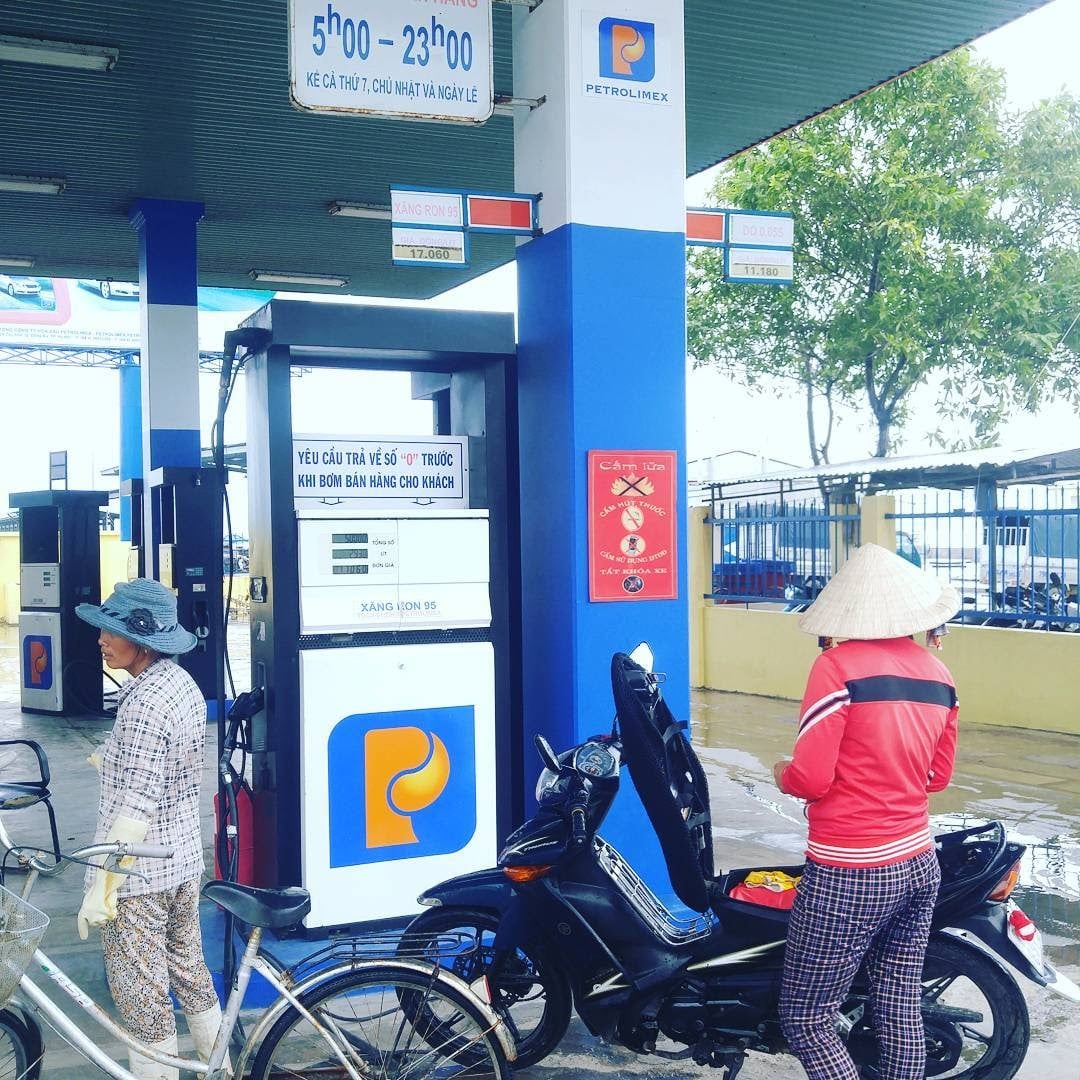
Image credit: @baekjihun
Rental bikes come without fuel, so a gas station will be your first destination after you rent one. The thing is, many gas stations in Vietnam are rigged with microchips to display the wrong number on the meter, or the attendants could conveniently “forget” to reset the counter to try and squeeze out some extra cash from you.
To get around this, always pay attention to make sure the meter starts from zero, and state a specific number (e.g. request VND50,000 worth of gas) instead of simply asking them to “fill the tank”.
10. Overpriced parking lot charges
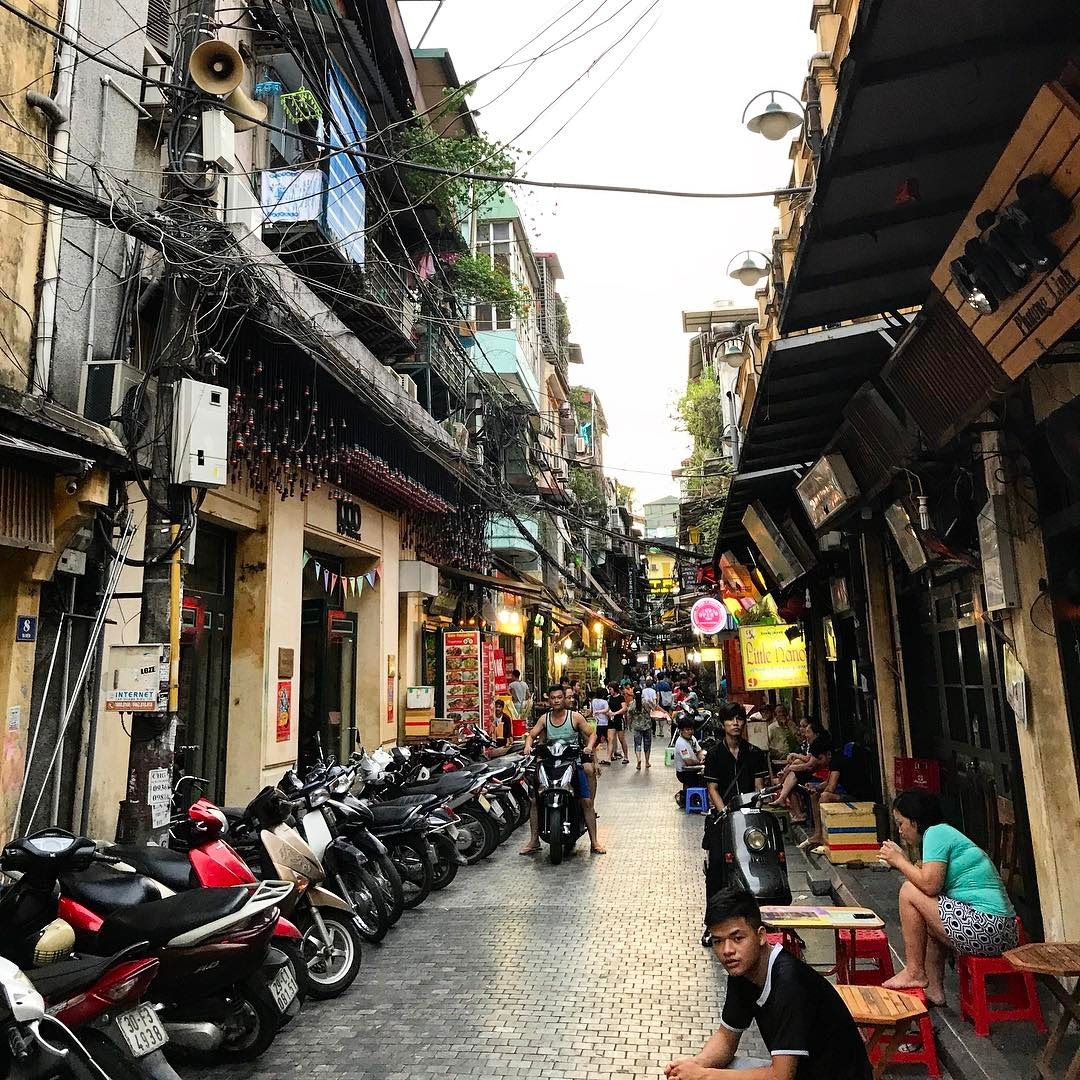
Image credit:@chic_family_journeys
Sure, a motorbike is useful in getting you to your destination, but what happens afterward? You have to park it somewhere, right?
As you approach a tourist attraction, you’ll be waved over by locals offering to take your bike, only to be charged VND50,000 (~USD2.15) upon returning to pick it up.
This applies to a lot of situations in Vietnam, but you should always ask for the price first before accepting a service. In this case, the flat parking rate for a motorbike should be no more than VND5,000 (~USD0.22) during the day and VND10,000 (~USD0.43) during the evening.
11. Extra fees for luggage on buses
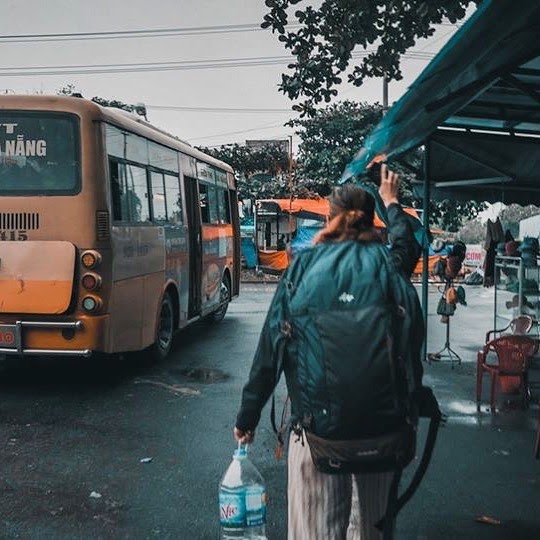
Image credit:@lavetura.ro
Buses are an economical way to get around for backpackers, but some drivers will try to get you to cough up some extra cash by claiming you have too much luggage. Unless you want to take your motorbike or an item of similar size with you, this is total nonsense. While luggage policies vary between bus companies, backpack storage space is always included in the price, so confirm that before you buy the ticket.
12. Bill switcheroos
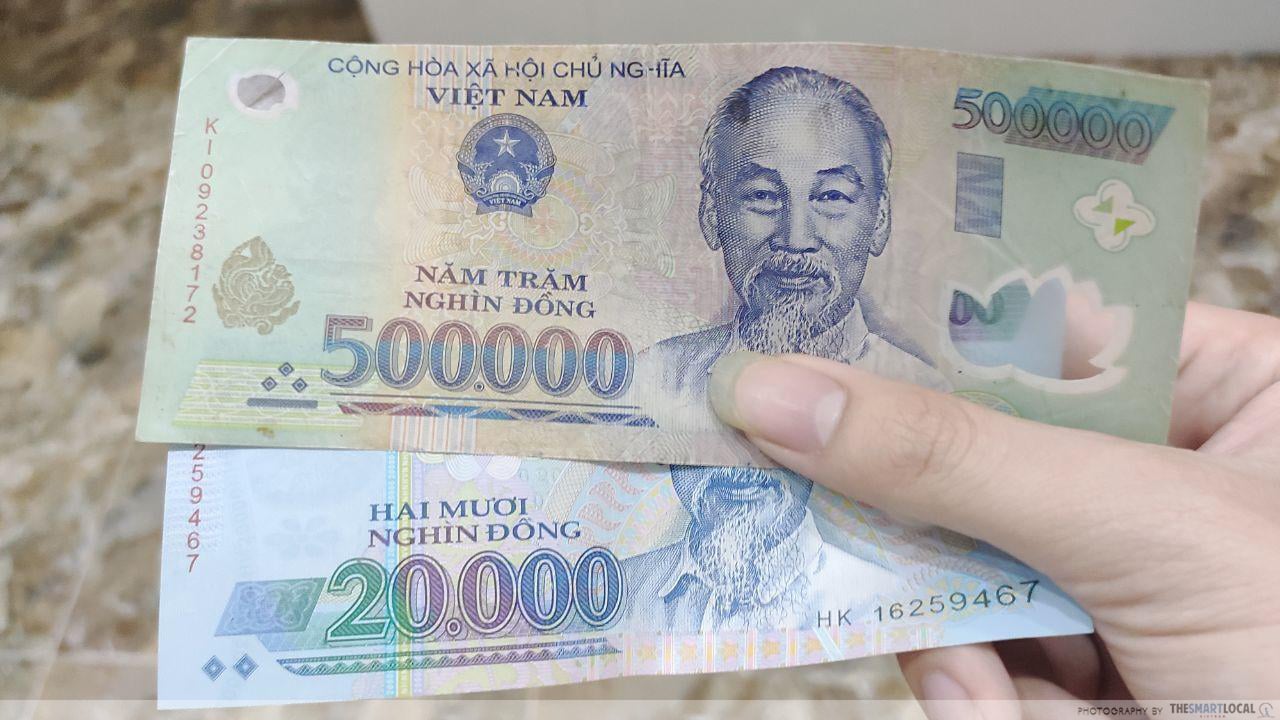
While most vendors and sales clerks are honest folks, some take advantage of the fact that the VND20,000 (~USD0.86) and the VND500,000 (~USD21.47) bills look strikingly similar to each other to rip off tourists. When you make a big purchase and hand them multiple VND500,000 bills, they can easily swap one of them with a VND20,000 bill hidden up their sleeves, then tell you that you gave them a VND20,000 bill by mistake and ask you to swap it for another VND500,000 bill. Due to your unfamiliarity with Vietnamese currency, you might actually believe them.
More blatantly, they can pull off the switcheroo even with smaller transactions when you give them a VND500,000 bill for a VND20,000 product, robbing you of your change. They’re not afraid to make a scene when confronted either. Some play the victim card and act as if you were the one who took them for a fool.
How to avoid: For big purchases, pay with your credit card if possible. If not, give them one bill at a time while saying the value out loud. Also, keep smaller bills in your wallet for casual purchases.
13. ATM skimming tricks
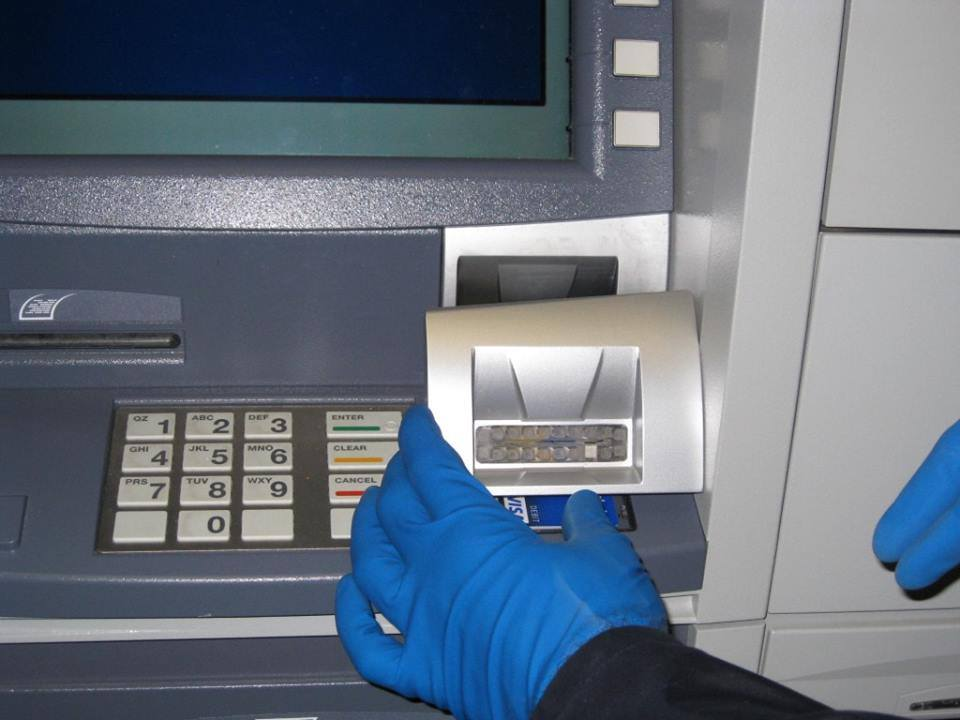
Image credit: Intelligence Bureau SA
ATM skimming is a common issue all over the world, and Vietnam is no exception. The convenient, innocent-looking machine that you just walked away from with a purse full of money might have been installed with a card skimmer or an overlay keypad to steal your data.
For security reasons, you should always use ATMs in controlled environments such as banks, where staff monitor security cameras and examine equipment more regularly. If that isn’t an option, inspect the card reader and keypad carefully before making your transaction. Pull on them if needed to make sure no unwanted device is there.
Travel scams in Vietnam
While there are bad people out there, Vietnam is a beautiful, friendly, and welcoming country. It’s a good thing to prepare yourself for unwanted situations, but don’t let that get in the way of you having a great time befriending locals and exploring the country’s rich culture.
Also check out:
- Online grocery shopping sites in HCMC
- Saigon landmarks past and present
- Tours near Saigon
- Hanoi landmarks then and now
- Hanoi Old Quarter guide
Cover image adapted from Nguyễn Thanh Huy and The Smart Local Vietnam
Enjoying The Smart Local Vietnam? Follow us on Facebook and LinkedIn for more stories like this.
